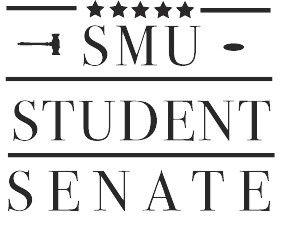
Despite hearing from many members of the lesbian, gay, bisexual and transgender community and their allies, the SMU student senate, in a tie, voted down the resolution to add a Sexual Orientation and Gender Identity seat to the student senate.
The resolution, which actually does not allow the senators to decide on the special-interest seat, but rather gives the student body the ability to vote on the measure during the spring semester, failed to receive 75 percent in favor to pass.
Tom Elliot who led the movement among students said he was disappointed with the vote.
“I was confident that the student senate would recognize the importance of letting the students decide on this issue,” he said. “It’s not over, there is definitely a chance to get a LGBT senator with 10 percent of the student body.”
Besides discussing his own situation, Elliot then read out loud two letters in support of the resolution by Joseph Kobylka, SMU associate professor of political science and Rick Halperin, director of the SMU Human Rights Program. Both professors were unable to make the meeting due to class conflicts.
Senators Lizzie Cochran and Patrick Sherrill wrote the resolution with the help of a few other senators after talking to members of the LGBT community.
“I really wish the senate had given their constituencies the opportunity to vote, but I do feel that the movement is not over and within the next year a LGBT senator will be in existence,” Cochran said.
Patrick Kobler, student body president also showed his dismay for the failure of the resolution.
“I am most disappointed that this issue will not be brought to a vote by the entire student body, which we have all taken an oath to represent,” Kobler said. “A vote on this issue is something that is bigger than the opinions of the student senate chamber. It is something that should have been brought to those we represent, for them to decide.”
The decision came after much discussion and debate as to whether to have a regular vote consisting of those who were in favor or against the measure, a roll call vote or a secret ballot vote.
Some senators said after past votes on the measure those who had voted against the resolution received threats.
After reading rules about secret ballots, the chamber decided to use a regular hand vote.
On the decision to use a regular voting practices, Kobler said, “I also think it should have been a roll call vote. So those who voted either for or against the legislation could be responsible to their constituency -that is democracy.
Tuesday’s senate meeting was not like any other this semester as senators voted on some of the most important legislation facing them in recent weeks.
The meeting began with a moment of silence to honor of World AIDS Day.
Then Carol Clyde, director of leadership and community development, asked senators for funding for the LeaderShape program. Later senators granted $2500 to the program.
Brooks Oliver, co-president of SPECTRUM, SMU’s LGBT student group, spoke about the legislation briefly then yielded the floor to the student body. He then played a iMovie of the Voice Campaign 2009 featuring nine minutes worth of images of various students holding signs reading “I support a Sexual Orientation and Gender Identity Senator.”
After the vote, Oliver said, “The senate upheld our standing as the 14th most homophobic school in the nation. However I believe had the vote gone to the student body this perception could have been changed. Clearly not all the senators represent their constituents.”
Susan Harper spoke about experiences during her 12 years on campus as a bisexual student, staff and faculty member. Harper said she was the first person to go through the allies program on campus. She recalled times where she witnessed hate speech and other times where students knocked on her door to confide their sexuality to her.
Two students, Jennifer Fugate and Philip Hayes, spoke against the resolution. Fugate said if the senators allowed LGBT special interest seats then they would have to allow all other seats.
Hayes spoke about the U.S. constitution and how it says all men were created equal. He then said special interest seats create inequality and does not unite people. Hayes urged the student senate to “do the right thing now.”
During the meeting there were several moments of chaos as senators were confused over Robert Rules of Order as to the proper methods of voting and governance over proposed legislations.
Besides the vote on adding the Sexual Orientation and Gender Identity special- interest seat there was another resolution to revise the student senate by-laws to allow anonymous legislation to be submitted. The resolution failed as many senators discussed the transparency of the law and how people should attach their names to legislation.
Three resolutions, however, did pass. One about “encouraging the construction and implementation of the upgraded irrigation system on the main quad.”
Other resolutions included making The Office of The Dean of Student Life form an internal affairs board to investigate student conduct and a resolution encouraging senate to move unused funds from the senate finances to the senate scholarship endowment.








